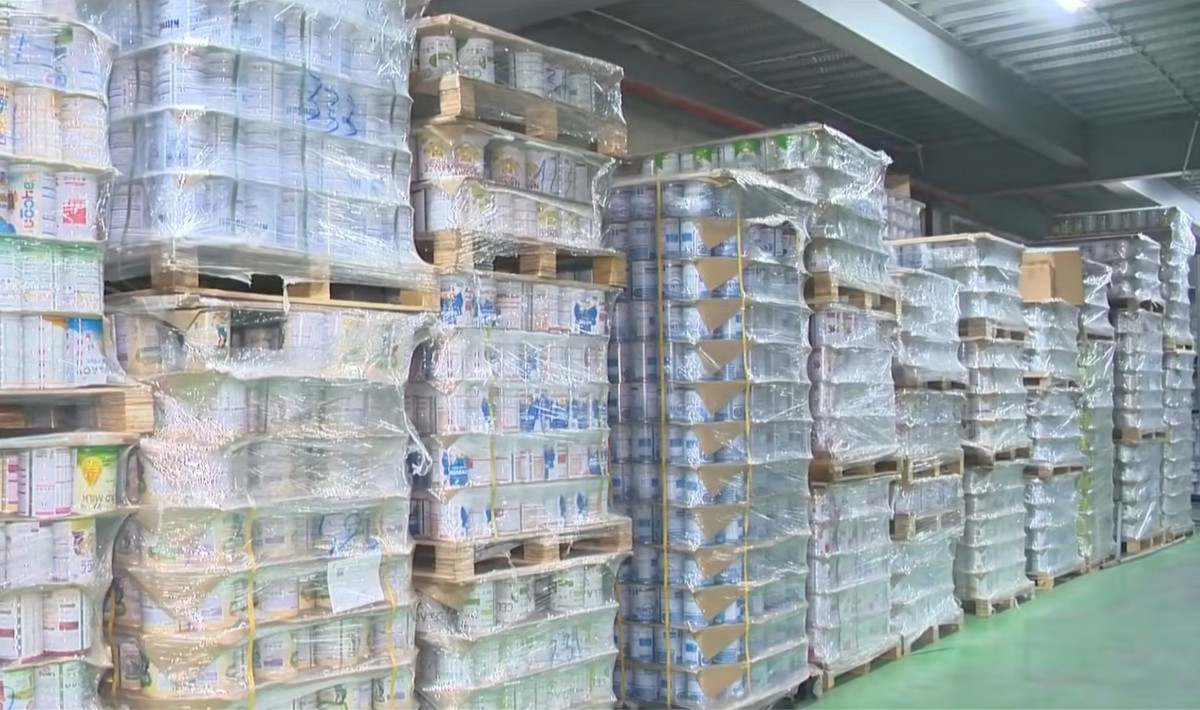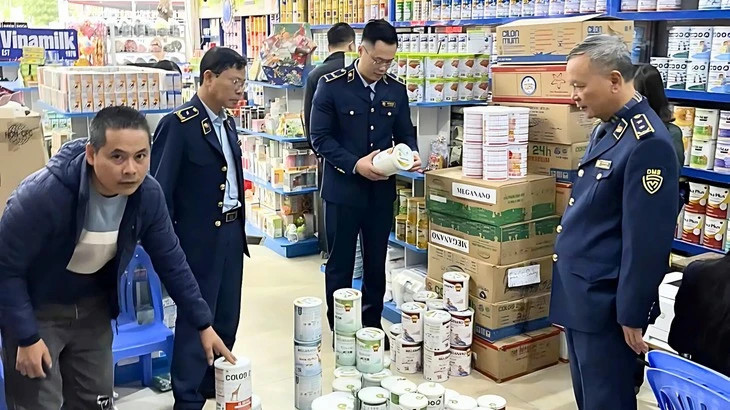On April 22, the Ministry of Public Security confirmed that 12 powdered milk products - out of 573 under investigation - were found to have less than 70% of the declared nutritional content and were classified as counterfeit. Authorities continue to examine the remaining 72 products.

On April 10, 2025, the police formally prosecuted and arrested eight individuals linked to the operation, including executives of Rance Pharma International Pharmaceutical JSC and Hacofood Nutrition Pharmaceutical JSC, both based in Hanoi. Investigators seized 84 milk powder products and over 26,000 cans from the illegal production facilities.
Initial findings indicate that since August 2021, Vu Manh Cuong (46) and Hoang Manh Ha (46) exploited rising demand for nutritional products - particularly powdered milk - by setting up these two companies to manufacture and distribute counterfeit goods.
The group developed 573 different brands of fake milk powder, targeting vulnerable consumers including diabetic patients, those with kidney disease, premature infants, underweight newborns, and pregnant women.
Products such as Cilonmum Colos Baby 24h, Gludabet, and Anmusure were aggressively marketed with promises like “weight gain,” “stable blood sugar,” and “boosted immunity.”
Despite claims that their formulas included premium ingredients such as bird’s nest extract, cordyceps, macadamia powder, and walnut powder, the products contained none of these. Instead, they used basic ingredients and additives.
Regulatory gaps in self-declared product approval

The revelation that 573 counterfeit milk brands entered the market has sparked public anxiety and pointed to critical loopholes in allowing companies to self-declare their product compositions without thorough post-market checks.
According to the Vietnam Food Administration (Ministry of Health), food product regulation has largely been decentralized to local authorities.
Companies registering nutritional or medical food products, including those for infants under 36 months, must submit applications to local departments. These include lab results valid within 12 months and scientific evidence supporting the claimed benefits of ingredients.
However, defendant Ho Sy Y (37), a shareholder in both Rance Pharma and Hacofood, stated that nutritional contents were never verified, which led to the fraudulent formulations. Co-defendant Dang Trung Kien (37), deputy director and shareholder, added that registration instructions focused solely on microbiological safety, not complete nutritional analysis.
The Ministry of Health said the self-declaration system was intended to reduce bureaucratic red tape. After declaration, companies are subject to post-market inspections carried out periodically or suddenly by inter-agency teams.
Still, the scale of the fake milk operation shows that enforcement of post-market inspections was severely lacking, allowing hundreds of counterfeit products to circulate unchecked for years.
Multichannel distribution and deceptive marketing

The ring operated a vast distribution network - from small retailers and convenience stores to e-commerce platforms and social media - making oversight nearly impossible and deceiving countless consumers.
Many of the fake products were marketed as "medical-grade milk" or "imported colostrum for premature babies," exploiting public trust and the urgent nutritional needs of vulnerable groups.
After the ring was busted, government agencies urgently instructed local authorities to review and enhance inspection of milk products, especially those self-declared or potentially counterfeit.
On April 20, the Deputy Minister of Health ordered hospitals nationwide to investigate any cases where staff promoted or sold nutritional products, especially the now-exposed counterfeit brands.
The Food Safety Authority issued directives on April 19 requiring localities to step up post-market controls, coordinate with relevant departments, and take swift action against fake and substandard food products.
Officials also urged local authorities to guide the public in recognizing misleading ads - such as those featuring doctors or making unfounded health claims - and to monitor and remove undeclared products from e-commerce platforms.
On April 18, the Ministry of Industry and Trade issued an urgent directive demanding tightened inspections on the sale of milk, medicine, and health supplements. Local governments were told to inspect and shut down non-compliant businesses and to confiscate counterfeit goods.
The ministry also stressed the need to enhance post-market checks of milk products, pharmaceuticals, and supplements to prevent similar scandals in the future.
Y Nhuy